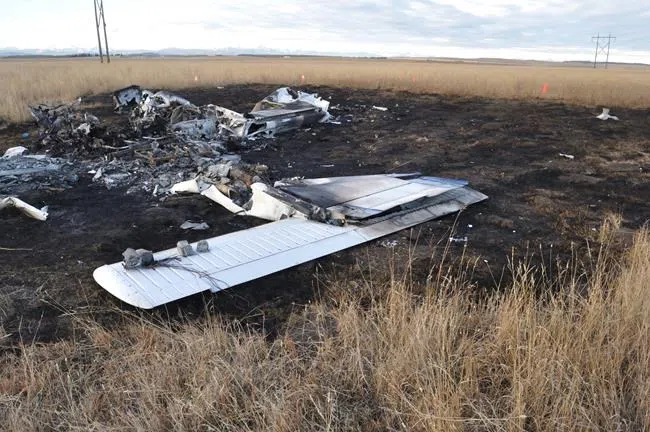
Alberta plane crash happened during engine failure training: safety board
CALGARY — The Transportation Safety Board says the fatal crash of a small plane west of Calgary last year is likely to have happened during simulated engine failure training while the plane was too low to the ground to regain control.
An instructor and student with Springbank Air Training College died when the low-wing Piper PA-34-200T Seneca II aircraft crashed Oct. 26, 2017, the board said in a report Wednesday. The pair were to do a multi-engine training flight and then the student was to take a flight test.
The report said the plane rolled to the left about 70 seconds after takeoff, took a steep downward left turn and hit the ground. It caught fire and the plane was destroyed.
There were no voice or data recorders aboard, which prompted the safety board to reiterate its call for them to be mandatory on small aircraft.
